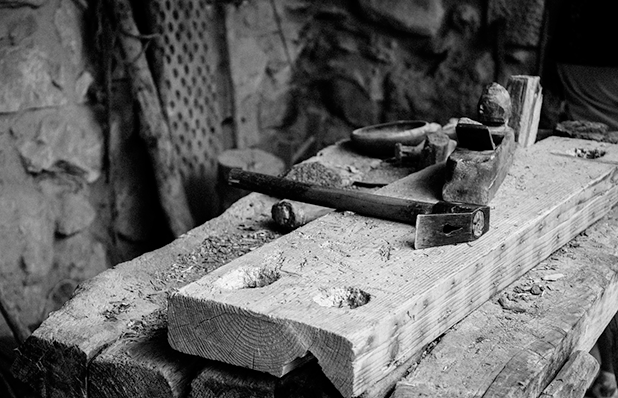Leaving a Legacy

By just about every standard of measurement, Don was an average man at best. The family he was born into was financially stressed and relationally dysfunctional. Don was not a highly educated man. He dropped out of school after only seven years of formal education, thus choosing a path of hard physical labor. But Don was undaunted by his circumstances. He dreamed of a better life for himself, his wife, and his children.
Don landed a job in the furniture industry and developed the skill of anchoring coil springs in upholstered furniture. The rate of pay per hour for this work was insufficient for Don’s needs, so he chose what was known as “piecework.” The more he produced, the more he could make. Piecework was demanding. Along with skill, it required speed, caution, and a high amount of physical energy. The toll on his body was enormous. But Don wanted to succeed, and was willing to pay the price. Don’s expertise and hard work did not go unnoticed. While still in his thirties, Don was promoted to the position of department supervisor.
Anyone who watched Don work would be dazzled by the deftness of his fingers as he rapidly secured coil springs to the frame of whatever piece of furniture he was working on through a process known as eight way hand tying.
Don could make extra money on the side by re-upholstering furniture for clients in his basement. It was here, in his home workshop that I watched a skilled craftsman at his work. And I reaped a number of benefits from Don’s work whether I watched him or not. Don was my dad, so I had a bed to sleep in and a place at the table because he provided that for me through his labor. But by watching him, he provided something else for me that he never realized he was doing. By watching my dad at work, I learned something about the craft of preparing and delivering sermons. Both crafts require skill. They both require a systematic approach. They both require a lot of hard work.
But there’s something else I have learned from watching my dad at work. No one would ever see the quality or the intricacy of his work. That elaborate web he wove tying the springs to the frame was something no one would ever see. His work would be covered with cushions and with fabric or leather. But over time, the quality of his work would become evident.
Years ago, my mom and dad gave us the sofa we had in our home since the time I was in my early teens. Even after some fifty years, this sofa will likely outlast most new furniture made today. Every time I sit or recline on this sofa, I am reminded of the legacy my father left me—a legacy he likely never realized he was leaving.
In my sermon this Sunday, I’ll tell you about someone in the Bible who was an average man, yet left an amazing legacy for the generations in his family who would come after him. His name is Asher, one of the twelve sons of Jacob (Israel). What we will absorb from Asher’s life is what I have already absorbed from my father’s life. You may not get to see much of the legacy you leave. You may not see how the choices you make today will impact your children, and your children's children, and even their children, but they will. You simply can't measure the impact of your life at any point during your life. So take heart, and live your life as if every choice is a personal investment that will pay dividends down the road.
More in Christ First Blog
January 13, 2022
Sunday Morning Preparation Part II: Unveiling Our HeartsJanuary 13, 2022
Preparing for Sunday Mornings Part IJanuary 29, 2020
Be Like God